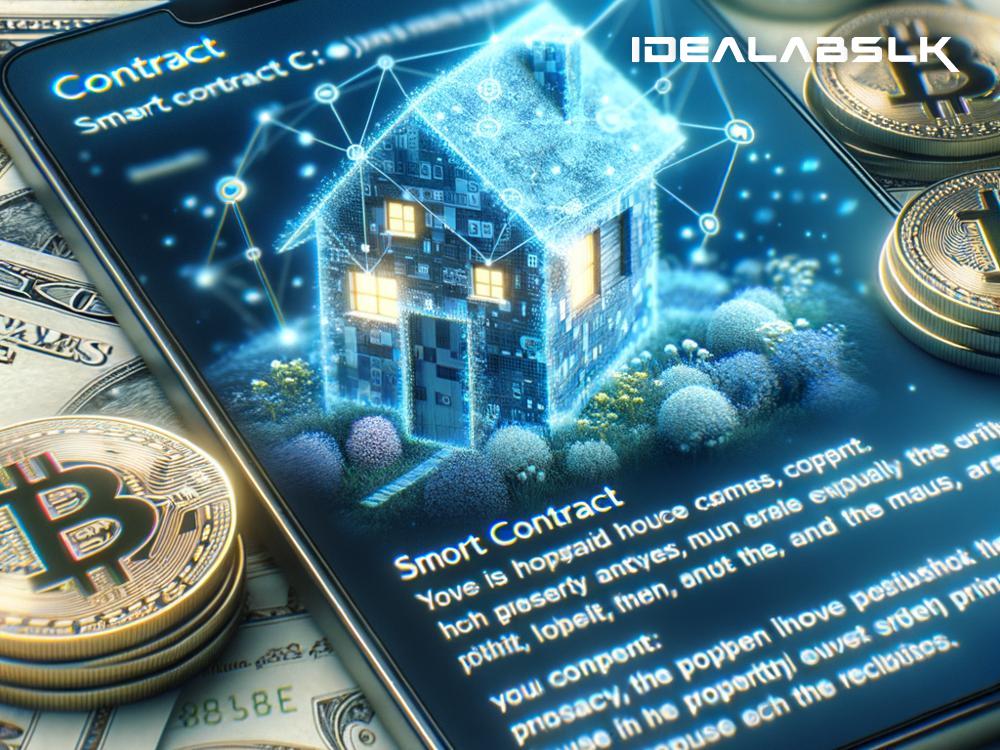Blockchain for Real Estate: How Smart Contracts are Changing Property Transactions
In today's world, technology is reshaping how we do many things, including buying and selling property. One of the game changers in the real estate sector is blockchain technology, particularly through the use of smart contracts. If you’re not tech-savvy, the term "blockchain" might seem a bit complex, but I'll break it down into simpler terms to show you how it's revolutionizing property transactions.
What is Blockchain?
Imagine a digital ledger that is completely public and secure, where every transaction is recorded and can be seen by everyone but cannot be tampered with by anyone. That's essentially what a blockchain is. It’s like a chain of digital "blocks" that securely store information across a network of computers. Because this ledger is decentralized – not controlled by any single entity – it’s incredibly secure and transparent.
Enter Smart Contracts
Smart contracts are self-executing contracts where the terms of the agreement between buyer and seller are directly written into lines of code. These contracts automatically enforce and execute the terms of the agreement when certain conditions are met, without the need for middlemen. In the realm of real estate, this means a lot of the paperwork, delays, and costs associated with property transactions can be drastically reduced.
Transforming Real Estate Transactions
Let's dive deeper into how smart contracts on the blockchain are changing the game for real estate:
1. Speeding up Transactions
Traditionally, buying or selling property involves a lot of paperwork, verification, and waiting periods. With blockchain and smart contracts, much of this can be automated, making the process quicker and more efficient. Since the contract is executed automatically once conditions are met, there’s no need to wait for intermediaries to verify documents or process payments.
2. Reducing Costs
Everyone knows that buying or selling property isn’t cheap. There are numerous fees involved, including commissions for real estate agents, legal fees, and more. Smart contracts can potentially eliminate or reduce the need for some of these intermediaries, lowering the cost for both buyers and sellers.
3. Increasing Trust and Security
The transparency and immutability of blockchain mean that all parties can trust the transaction process more. Since every transaction is recorded on a public ledger and cannot be altered, there’s a clear, trustworthy record of every deal. This reduces the potential for fraud and makes property transactions more secure.
4. Making International Transactions Easier
Buying property in another country can be a complex affair, involving different currencies, regulations, and the challenge of verifying documents across borders. Blockchain technology can simplify this by providing a unified, secure platform for international transactions, reducing the need for currency exchange, and ensuring that all legal requirements are met transparently.
5. Democratizing Real Estate Investments
Investing in real estate traditionally requires a significant amount of capital, which locks out many potential investors. However, blockchain enables new forms of real estate investment like tokenization, where property is divided into shareable digital tokens. This means people can invest smaller amounts of money in property, making real estate investment more accessible to the general public.
Challenges Ahead
While the potential of blockchain and smart contracts in real estate is immense, there are still challenges to overcome. Legal and regulatory frameworks vary by country and are still catching up with these technologies. Additionally, there’s the need for widespread adoption by all stakeholders in the real estate industry - from buyers and sellers to lawyers and government registries.
Looking Forward
As we move forward, the continued development and adoption of blockchain and smart contracts hold the promise of making real estate transactions more transparent, secure, and accessible. This could revolutionize the industry, making it easier for everyone to buy, sell, and invest in property. The journey towards fully realizing this potential is ongoing, but the future looks promising.
In conclusion, blockchain and smart contracts are indeed changing the landscape of real estate transactions. By automating processes, reducing costs, and increasing security, they have the potential to make buying and selling property a smoother, faster, and more accessible experience. As with any technological advancement, there will be challenges and hurdles to overcome, but the benefits could transform the real estate sector as we know it.

